Watch the Third DASH Framework Webinar
On September 26, 2022, Data Across Sectors for Health (DASH) hosted the final installment in the three-part webinar series: Advancing Community Health Through Equitable Data Ecosystems. The session focused on Navigating Market Forces and Policies, a key domain of the DASH Framework, which highlights the key domains of shared multi-sector data landscapes and guides communities to leverage their data ecosystem for equitable systems change.Data sharing has increasingly become a predominant feature and activity of healthcare systems, as there is a consensus among healthcare and other policy experts that health information exchanges (HIE) and other data sharing systems are critical to providing quality care that meets the needs of patient populations and healthcare providers in the United States. Therefore, it is important to understand the role of market forces and policies in shaping capacities, opportunities, and barriers to data sharing within data ecosystems. Panelists from DASH-funded programs shared their experience of navigating the market forces and policies impacting their communities as they work to build equitable data ecosystems for all.Speakers included:
David Poms, Partnership Manager at DC PACT, LAPP 1.0 granteeGreg Bloom, Founder of Open Referral Initiative, LAPP 1.0 grantee
Waldo Mikels-Carrasco, DASH Co-Director at the Illinois Public Health Institute, moderated the conversation.By the end of the session, attendees were able to:
Describe the role of market forces and policies in shaping capacities, opportunities, and barriers to data sharing within data ecosystems.
Identify the role local communities play in creating a more effective and just policy sphere.
Understand that available data within a capitalist system often reflect inequities that shape our society.
Watch the recording:
Download resources:
Resource Guide: DASH Framework - Navigating Market Forces and Policies (Sept 26)
Presentation Slides - English: DASH Framework - Session III: Navigating Market Forces and Policies ENG (Sept 26)
Presentation Slides - Spanish: DASH Framework - Session III: Navigating Market Forces and Policies SPA (Sept 26)
